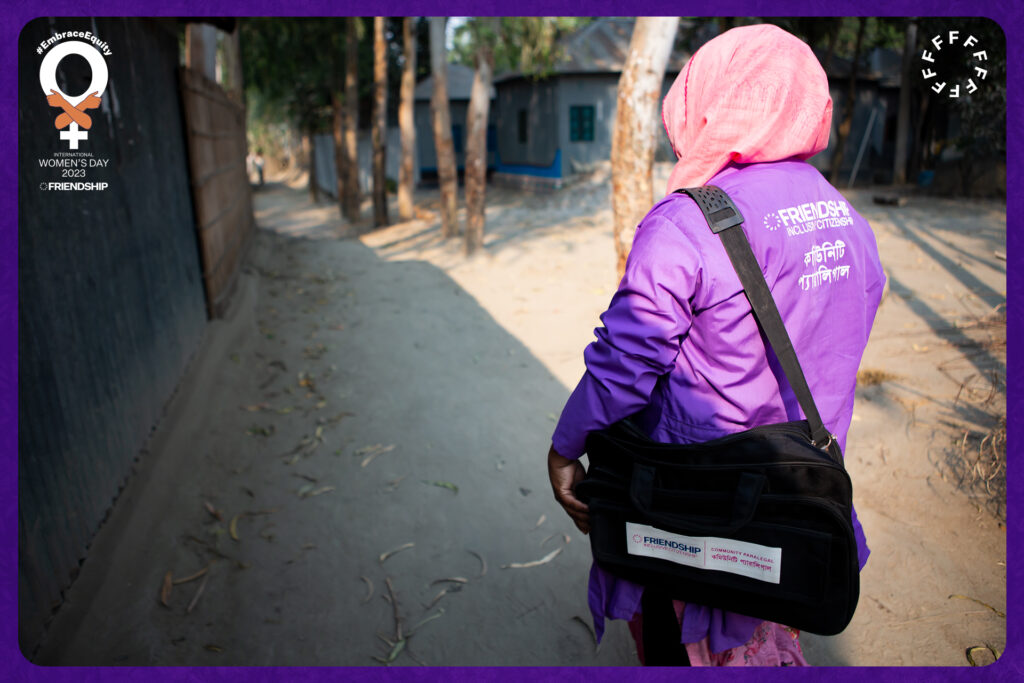Friendship head of Inclusive Citizenship, Ayesha Taasin Khan says inclusive legal systems can help to empower women

by Ayesha Taasin Khan
March 12, 2023
On the advent of International Women’s Day, we must reflect on the progress we have made toward gender equity as well as the challenges that still lie ahead. While significant progress has been made in the understanding of gender equality at the onset of the 21st century, we must acknowledge that women continue to face significant barriers and discrimination to equal treatment—for example, the inequality in pay which continues to this day.
Access to justice is a fundamental human right, yet many women around the world continue to be denied this basic right. Gender-based violence is one of those glaring examples. Women continue to be afraid of speaking out against such violence because our society has repressive expectations, enabling laws and practices based on archaic and patriarchal practices that seek to limit their ability to seek justice. This perpetuates the cycle of inequality and discrimination that undermines the full participation of women in society.
Furthermore, women are disproportionately affected by poor governance, corruption, and a patriarchal system that still exists in society. They often lack the power and resources to hold leaders accountable and participate meaningfully in decision-making processes. This in turn feeds into the cycle of inequality leading to the creation of policies and laws that fail to reflect the needs and priorities of women.
“Fearlessness is like a muscle. I know from my own life that the more I exercise it the more natural it becomes to not let my fears run me.” – Arianna Huffington
To achieve gender equity, we must prioritise access to justice and equitable access to economic resources. This means addressing all kinds of discrimination and support to give to women who face such injustices and social prejudice. This can be done by promoting transparency, accountability, and the development of a social framework that would ensure that women are given such support from the government, i.e. creating a space where they can be heard and where they can take sanctuary and participate in decision-making processes to improve their quality of life.
As a law practitioner and activist, I have seen first-hand the impact that access to justice and good governance can have on women’s lives.
Legal empowerment is a powerful tool for advancing and changing lives by providing women with the necessary knowledge and tools, with this they can empower themselves to take control of their lives and challenge discriminatory practices and policies. Legal empowerment can help women to secure property rights, access education, and healthcare, and protect themselves from violence and exploitation. It can also provide women with a platform to raise their voices and participate in decision-making. Through legal empowerment, women can become agents of change in their own lives and their communities, creating a more equitable and just society for all.
As we celebrate International Women’s Day, let us commit to advancing gender equity by promoting cohesion and freeing ourselves from repression of any sort whereby we may be able to flourish hand in hand in a more inclusive society.




